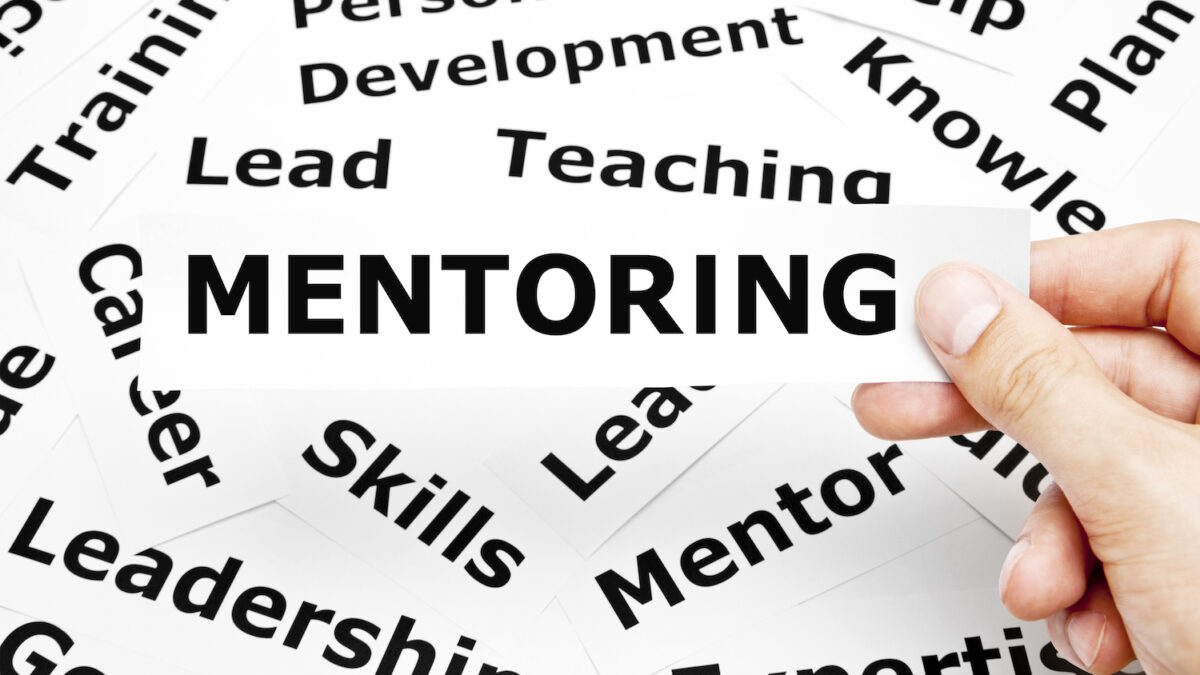How to be a great mentor

Understanding the difference between being helpful and useful is fundamental to a successful mentoring relationship
Imagine this: a young, ambitious project manager in your team approaches you and asks you to be their mentor. They are looking for support and advice on the strategic direction they need to be taking to meet their career goals.
You have never mentored anybody before and you don’t fully understand what a mentor does, but you value them and their contribution to the team, so you want to do the best for them.
Want to know how to approach this? Read on.
People are climbing the career ladder to positions of seniority but few have been taught the people side of the business. Few have been shown how to get on with people, how to get the best out of people and how to build a team.
Establish who has power
It exposes a huge skill gap in the industry. And this is perhaps why apprehension and misunderstandings surround mentoring.
When you are looking at the relationship between you and this team member, ask yourself: who needs to take the action in this situation? Who needs to do the thinking? Who has the power?
The answer: it is the project manager. It’s their career, their life, their success or failure. They are the one who has to have the agency, to be empowered in this relationship.
Distinguishing the so-called helping professions
- Training is about knowledge transfer. For example: “I know about BIM and I will train you in BIM”. The trainer has the power.
- Consulting – a consultant will come and tell you how to do something. They have the subject matter expertise and, as such, they have the power.
- Coaching is future-focused, positive and consists of having conversations with another person who wants a specific result. It’s about moving from where they are now to where they want to be. Coaching creates an environment where the other person can do their best thinking. Our thinking precedes our action and our action precedes our results. So, change starts with replacing old ways of thinking with new narratives. Coaching is not giving advice. It is not making suggestions. It is not leading someone’s thinking or diminishing their power. It is working with healthy, coping adults.
- Counselling is about working with someone who is not healthy and is dealing with healing from an issue in the past. There is a big difference between coaching and counselling.
- Mentoring is different again. It is working with someone who is on the same path as you but you are a lot further down that path, maybe 10 years ahead of them. You have learned a lot along the way and that person wants to benefit from your experience so you are free to give them advice and share what happened to you.
Making sure the power is in the right place
However, with giving advice there is a risk. Mentoring affords you grandfather rights: you have been there, done it, got the badge and you want to help someone avoid the pitfalls.
Your mentee might ask you how you handled a certain situation when you were at the same stage as them. But as soon as you tell someone what to do, they stop thinking for themselves.
An empowering move here would be, instead, to challenge them by saying: “Okay, I will share that with you but before I do, what do you think?”
As a mentor, you have more experience and can use that to ask questions about how they would handle the situation.
Useful is empowering
There is an interesting distinction between being helpful and useful. If you seek to help someone you make them help-less – you can become a crutch.
If you are the helper, you have the power. It makes you larger than them and they become smaller, it disempowers them. It is also patronising to get up close and ask: “How can I help you?”
Instead, set out to be useful. Go into the conversation with the intention of it being useful. It shapes who you are in the conversation; it shapes how you approach it. Start your mentoring conversations by asking: “What would be most useful for you today?”
A useful conversation is where they will take their own insights and thinking and then use it. They are enabled, they take action, they have agency.
By incorporating some coaching practices in your mentoring, you will give your mentee the power to assess their own thinking, to make their own decisions and to feel empowered.
Key takeaways
- You are further down the same path as they are.
- It’s their learning, success, career, life – they hold the power.
- Your experience enables you to ask better questions.
- Helping can make them: help-less, smaller, disempowered, so set out to be useful.
- Ask what would be useful for them today.
- Ask what they think before you share your experience.
- Blend coaching practices into your mentoring.
Useful resource
My course here shows how to build coaching skills into your management style and your mentoring.
This article was first published in CIOB People

